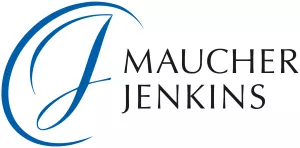Filing opposition against a European Patent is cheap and low-risk. The fee is just €880 and it is rare for costs to be awarded against an opponent who loses.1 Many pending European patent applications are put on watch to see what scope of claim is granted by the European Patent Office and, if the patent poses a threat, nine months is an adequate period to prepare an opposition, with any necessary prior art searches or gathering of evidence. Even if there is no new prior art to be brought into an opposition, an opponent can object to an amendment made during prosecution and, with the strict prohibition on added subject matter, opposition can be a patents graveyard. About one third of opposed patents are revoked and another third are limited in their scope.2
A European patent can be opposed by a "straw man" such as a European Patent Attorney or a shell company formed for no other reason. The only limitation on this is that it should not be an abuse of process, such as circumventing the requirements to be represented by professional representatives.3 This is a common tactic to clear the way without revealing the identity of the party who might be concerned with infringement.
Once the nine-month period for opposition has closed, the patent is safe from such quick and cheap central attack. Heretofore, the options for revocation have been limited to national procedures, with the Munich Patents Court being a favoured venue for challenging validity. The fee before the Munich Court starts at about €10,000 and rises with the value of the patent in dispute. The fee for initiating proceedings before the UKIPO is very low - just £50 - yet very few revocation actions begin there, mainly because of the right to appeal to the High Court. Costs can escalate very quickly if the patentee appeals and the third party continues the fight. If the stakes are high, third parties may prefer to start the action at the Court. If the stakes are not so high, a non-binding opinion from the UKIPO can be a good option (fee £200) and, if the UKIPO opinion is that the patent is invalid, the Comptroller of Patents can even revoke the patent of his own motion.
New Opportunities through the UPC
From 1 June 2023, the new Unified Patent Court is available for revocation of patents within its jurisdiction. This includes patents that extend to France and Germany (the EPC states in which patents are most commonly validated), provided the patents are not opted out of the Court's jurisdiction.4
Revocation before the UPC, if available, is more expensive. The Court fee is €20,000, which is fixed regardless of the value of the patent. This is true even in the case of a counterclaim for revocation. In such cases, where the value in dispute and the court fee for an action for infringement are high, the fee for the counterclaim for revocation remains fixed.
In proceedings before the UPC, the loser pays the winner's costs.5 These are open to be determined by the Court according to the value in dispute.6 So the downside risk of losing in an action for revocation can also be high.
There is doubt over whether a revocation action may be brought by a straw man. The UPC Agreement Art 47 specifies who is entitled to bring proceedings and, in the case of third parties, Art 47(6) specifies that proceedings may be brought by any natural or legal person who is "concerned" by a patent. This is in contrast to opposition before the EPO, which can be brought by "any person". Indeed, the very absence of any requirement in the EPC for the plaintiff to have an interest in the nullification of the patent was identified by the Enlarged Board of Appeal as a reason why the EPC expressly provides for opposition as a popular rights remedy open to anyone and everyone under Article 99(1) EPC.7 Incidentally, revocation before the UKIPO can also be initiated by a straw man.8
Inclusion of the word "concerned" in the UPCA is in line with the law of various national courts which require some level of interest or standing by the person bringing the proceedings. Under Article 31 of the French Code of Civil Procedure, for example, a person bringing a claim in civil proceedings must have a direct interest in the outcome. This has been put to the test in patent revocation actions. In Zodiac Aerotechnics9, for example the claimant was required to show that the patent was an actual threat to its economic activity. More recent cases place emphasis on the interest being present, actual and concrete, as opposed to hypothetical or conditional.10
It will fall to the new Court to decide whether a straw man may file a revocation action and, if not, what level of evidence is required to show standing. Might it, for example, be an abuse of process to apply to revoke patents in the name of an industry association on behalf of association members? This has been done in the past for opposing European patents, allowing the real party of interest to remain anonymous.11 Might this be an abuse of process if the association has insufficient assets to meet an award of costs? This need not be an impediment, because a patent owner can request security for costs and the Court may make an order for such (Art 69(4) UPCA).
Conclusion
Owners of European Patents may choose to opt them out from the jurisdiction of the UPC. A principal motivation will be to avoid re-opening the opportunity for central revocation after the nine-month period for opposition has closed. This should not be a concern for those many patents that are validated in just the UK, France and Germany. Not opting out means the national courts (the status quo) and the UPC have parallel jurisdiction. On its face, the UPC does not offer third parties very much advantage over and above the status quo in these states. (Indeed, it may offer advantages for patent owners - see https://www.maucherjenkins.com/commentary/upc-update-pros-and-cons-of-opting-out).
For patents that are validated in many countries, a risk of central revocation may indeed be a concern, but it is neither a cheap nor easy alternative to opposition. It is likely that the party seeking revocation will not be able to hide behind a straw man. The real party of interest may have to appear above the parapet, leaving open the possibility of a counterclaim for infringement. The downside risk will include the patentee's costs if the revocation action is unsuccessful and worse if infringement is likely or can be proven. On the other hand, central revocation of a European Patent before the UPC remains available after the opposition period has expired.
Footnotes
1 Each party bears their own costs, but a different apportionment can be awarded where a party withdraws a request for oral proceedings, asks for postponement, or fails to attend.
2. https://www.cipa.org.uk/wp-content/uploads/2022/05/CIPA-Attacking-UK-Patents-2022.pdf
3. G03/97 Reasons 4.2.1
4 https://www.maucherjenkins.com/commentary/upc-update-pros-and-cons-of-opting-out
5. UPC Agreement Art. 69(1).
6. Rule 152 - The Administrative Committee has set a scale of ceilings for recoverable costs by reference to the value of the proceedings.
7. G03/97 Reasons 3.2.1.
8. Oystertec Plc's Patent [2003] RPC 29.
9 Paris Court of First Instance, 28 April 2017, 19/09770 B/E Aerospace v. Zodiac Aerotechnics.
10 In the context of pharmaceutical patents, French judges have ruled that an action for a declaration of invalidity can be filed by plaintiffs who are consumers and patients, and that such an action serves the public interest - see Paris Court of First Instance, 16 March 2017, n° 15/07920 Actelion Pharmaceuticals v. ICOS
and Paris Court of First Instance, 24 January 2020, n° 18/14575, Alerte Thyroide v. Lévothyrox, upheld on appeal - Paris Court of Appeal, 4 February 2022, n° 20/07061
11 E.g. Interessengemeinschaft für Rundfunkschutzrechte was a TV standard patent licensing company that regularly opposed patents of non-members.
The content of this article is intended to provide a general guide to the subject matter. Specialist advice should be sought about your specific circumstances.


